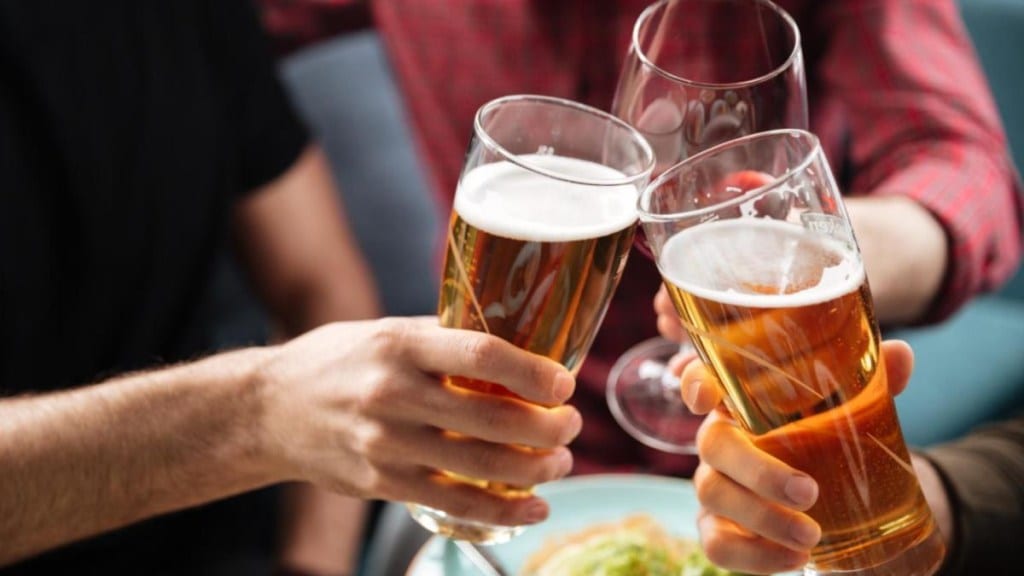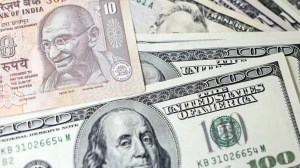The new year has just begun and some of you must be still in the mood for partying hard. While it is absolutely okay to indulge yourself once in a while, just remember to keep your liquid calories in check. Confused? Well, we are talking about your alcohol intake. In the pursuit of losing weight, people often reassess their fitness goals and focus on their habits around eating and exercising. But what many don’t realise is the fact that alcohol, too, has a key role to play in the grand scheme of things.
Just figure this out. A regular beer (350 ml) can contain about 150 calories or more, depending upon the brand and type. A light beer can contain about 100 calories for a similar serving. Both red wine and white wine contain about 125 calories for a 150-ml serving. “Similarly, spirits (vodka, whisky, rum, etc) of 40% ABV can contain about 64 calories per 30 ml (80 calories per 30 ml for 50% ABV),” as per Dr Pawan Kumar Goyal, senior consultant, internal medicine, Fortis Hospital, Shalimar Bagh, New Delhi.
“One serving of alcohol is 100-150 calories; so, consuming three drinks a day would be around 300-450 calories. If mixed with Coke or juice, it will further add to the calories,” says Ritika Samaddar, regional head—south zone, dietetics and nutrition, Max Super Speciality Hospital, Saket, New Delhi.
According to Vedika Premani, clinical dietician at Sir HN Reliance Foundation Hospital in Mumbai, alcohol contains about 7 kcal per ml, which makes it more calorie-dense than carbohydrates and proteins, which have 4 kcal per gram. “The total calories depend on multiple factors like alcohol content of the drink, added ingredients, how often one drinks and what one eats while drinking. Alcohol can induce excessive hunger and hormonal imbalances which can lead to overeating and excessive caloric intake, in turn contributing to the weight gain further,” she adds.
As such, alcohol contributes significantly to calorie intake. “However, it is often overlooked during weight loss, despite its caloric impact, as more attention is typically given to monitoring food intake,” says nutritionist and fitness expert Nupuur Patil.
Empty promises
Alcohol comes with high calories but without the nutrients. Simply put, calories from alcohol are ‘empty calories’, and they provide little to no useful nutrients such as protein, fibre, vitamins, minerals, essential fatty acids or antioxidants. Foods composed mostly of empty calories have low nutrient density, meaning few nutrients relative to their energy content.
Some alcoholic beverages may contain traces of vitamins and minerals, but they are not usually in amounts that can make any significant contribution to our diet.
Alcohol also affects your metabolism. “When you consume alcohol, your body prioritises metabolising it over burning fat, which can hinder weight loss efforts. Additionally, alcohol consumption can increase appetite, leading to excessive food consumption,” says Bhakti Samant, chief dietician at Kokilaben Dhirubhai Ambani Hospital, Mumbai.
Alcohol consumption should not be encouraged as it increases the intake of simple carbohydrates which can have health implications, says Samaddar of Max Super Speciality Hospital. “Increased intake can cause fatty liver and affect liver health. It can affect cardiac health, and increase blood pressure. People with diabetics should not take alcohol as it can cause unstable blood sugar levels. People on regular medication should not consume alcohol as it can cause interactions and hamper health. Also, regular consumption of alcohol can cause nutritional deficiencies like vitamin B1 (thiamine) , B12 and foliate,” she adds.
Rise in consumption
A study recently undertaken by The Lancet shows that there has been an increase in alcohol consumption in India over the past three decades. Consumption was the highest among men in the age group of 40-64 years, which has increased by 5.63% since 1990, followed by the 15-39 age group with a jump of 5.24%. For those aged 65 years above, it has increased by 2.88%.
Commenting on the concerning rise in cases related to alcoholism and alcohol-related ailments globally, including in India, Dr Alokit Gulati, HOD, Gastroenterology and Hepatology, Primus Super Speciality Hospital, New Delhi, says: “The issue is multifaceted and involves social, economic and health factors. Increased awareness, education and access to support for individuals struggling with alcohol-related issues are crucial components in addressing this growing problem in India.”
According to a WHO report, across India, consumption of alcohol is responsible for nearly 1.4 million cases of 19 diseases, for which alcohol has been identified as a prominent risk factor and 11 million disability-adjusted life years (DALYs), which is 8.8% of the total DALYs per year.
According to a meta-analysis of 2022 by the National institute of Health, around 20-45 % of adult males and 5-8 % of adult females drink alcohol. “But one-fourth of the adult males who drink alcohol need help due to various alcohol-related health issues. Harmful effects of alcohol were the cause of 5.9% of all deaths,” says Dr Goyal of Fortis Hospital.
“Various government initiatives, regulations and efforts are in place to tackle this social evil. Efforts are also being made by various semi-government agencies, NGOs, social organisations and public health groups to educate people about the harmful effects of alcohol,” adds Dr Goyal.
Any safe amount?
The risks and harms associated with drinking alcohol have been systematically evaluated over the years and are well documented. Last year, the World Health Organization (WHO) published a statement in The Lancet Public Health, in which it said that, when it comes to alcohol consumption, there is no safe amount that does not affect health.
“Alcohol is a toxic, psychoactive and dependence-producing substance and has been classified as a Group 1 carcinogen by the International Agency for Research on Cancer decades ago… Alcohol causes at least seven types of cancer, including the most common cancer types, such as bowel cancer and female breast cancer. Ethanol (alcohol) causes cancer through biological mechanisms as the compound breaks down in the body, which means that any beverage containing alcohol, regardless of its price and quality, poses a risk of developing cancer,” the WHO said.
However, if you must have alcohol, moderation is key. The recommended daily calorie intake for an adult varies but is generally around 2,000 to 2,500 calories. “Health guidelines often suggest limiting alcohol intake to moderate levels, which typically means up to one drink per day for women and up to two drinks per day for men, considering its impact on overall caloric intake. As per the CDC’s guidelines, a standard serving size is equal to 14 grams (0.6 ounces) of pure alcohol,” says Dr Gulati of Primus Super Speciality Hospital, New Delhi.
Tips and tricks
Here are a few ways to avoid gaining weight and reduce calorie intake, if at all you have to drink…
Choose lower-calorie options
- Opt for light beers, as they generally have fewer calories than regular beers
- Consider spirits with lower-calorie mixers, such as club soda
Watch portion sizes
Be mindful of portion sizes. Measure your drinks to control the amount of alcohol and mixers you consume
Use smaller glasses to help control portions and reduce overall consumption
Alcohol can lower inhibitions, leading to increased snacking. Be mindful of what you eat while drinking, especially late at night
Avoid excessive snacking while drinking, as it can contribute to additional calorie intake
Stay hydrated
Drink water alongside your alcoholic beverages to stay hydrated and help control your overall calorie intake
Limit frequency
Stick to moderate drinking and follow recommended guidelines. Avoid drinking alcohol daily to manage overall calorie intake
Incorporate physical activity
Engage in regular physical activity to help balance your overall calorie equation. Exercise can help in better weight management and overall well-being of the individual
— Bhakti Samant, chief dietician, Kokilaben Dhirubhai Ambani Hospital, Mumbai







